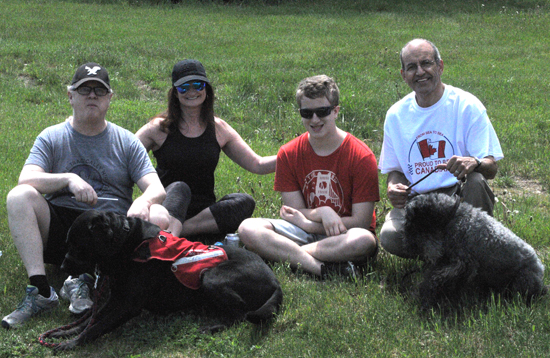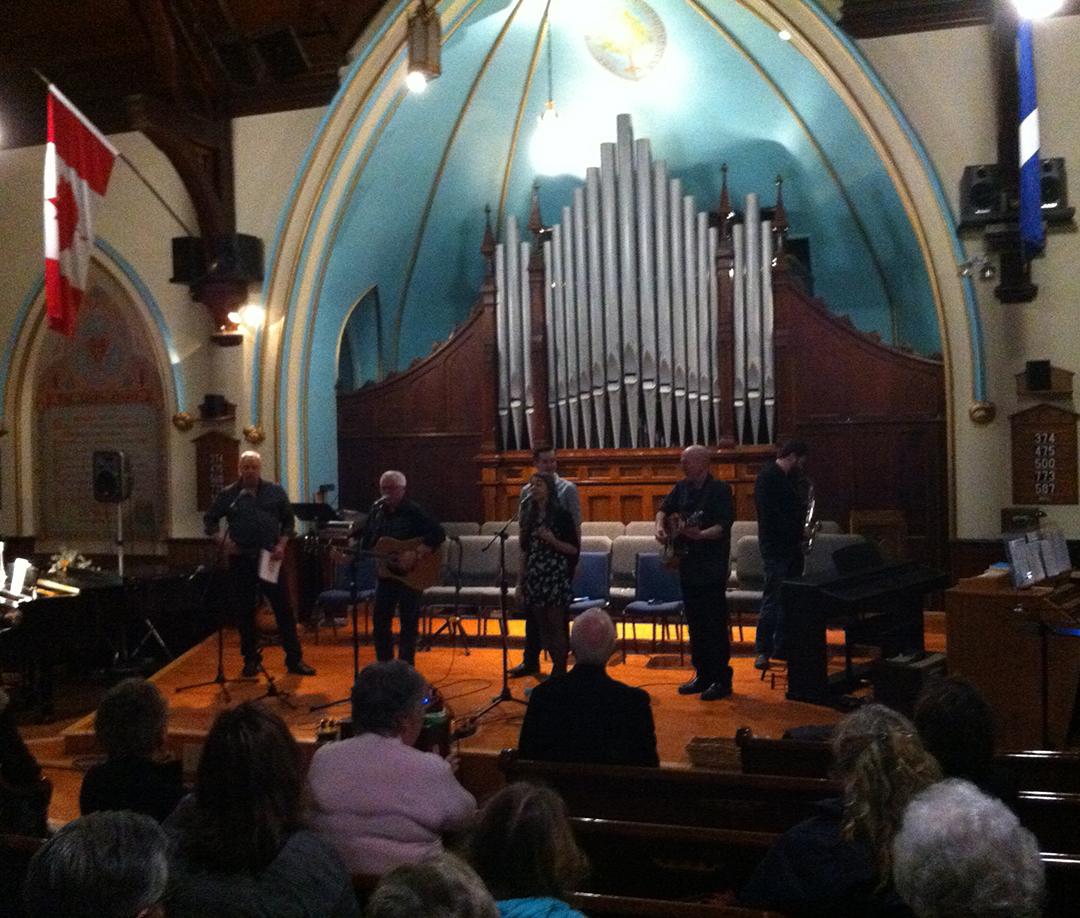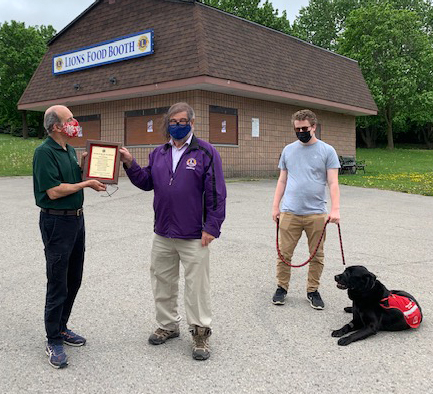
Jonathan Wilson will graduate in about a year. He’ll complete the Journalism and Mass Media program at Durham College. Despite having to adapt to online learning for the past year from his home in Uxbridge, he’s getting A’s in his grades, and earning praise for his portfolio of stories.
Once he graduates, Jonathan will start beating the bushes for full-time work as a professional journalist. His mom, Lisa Wilson, is proud of her son’s accomplishments. She’s also thankful for the charity of others.
“If it wasn’t for the Lions Foundation and Dog Guides Canada,” Lisa told a handful of us this week, “none of this would’ve been possible.”

Under normal circumstances, at about noon this Sunday, May 30, dozens of dogs and their owners would gather at the Lions pavilion in Elgin Park. I say normally, because we’ve been doing this like clockwork for each of the past 20 years.
Most of us would be completing our pledge forms, handing in the cash from donations, and meeting some of the beneficiaries of the Dog Guides program – people such as Jonathan – before starting our walkathon around town to demonstrate our dedication to the international Dog Guides program.
About nine years ago, Jonathan, who has autism, received Cagney, a black Lab guide dog trained to offer calm whenever Jonathan needed it, whether at home or at school. Each year following our walkathons, the Lions would have announced donation totals for ours and similar fundraisers across the country. The past few years, the national campaign has raised as much as $1.3 million each walkathon, $5-6,000 locally.
Not this year. Bob and Sue Armitage, who’ve organized the Lions Dog Guide campaign locally since the late 1990s, admitted that donations are down as much as 80 per cent since the pandemic.
“But it still costs $35,000 to train an individual dog such as Cagney, these days,” the Armitages pointed out.
By coincidence this month, members of the board for the Uxbridge Music Scholarship Trust (UMST) met virtually to discuss the state of the charity and its potential beneficiaries. The UMST was born in 1998 when several area musicians and teachers – including the late Anthony Holt and flutist Leslie Joosten – recognized that music talent abounded in Uxbridge, but often not the financial means to see young performers flourish.
“We have all the ideals,” Anthony Holt told my colleague Roger Varley 23 years ago, “but now we have to get down to earth and raise the money.”

In the 23 years that the program has received applications, conducted auditions, and dispensed scholarships, the UMST has awarded $86,950 to 63 deserving musical performers. Many of the recipients have gone on to work as professional singers, instrumentalists, music teachers, private instructors and performers of musical theatre, jazz, popular music, and classical music. All because this community cared enough about the arts, in particular music, when times are toughest. Such as now…
When the UMST launched in 1998 (I joined the board shortly thereafter), among the first in our community to offer assistance was the Uxbridge Optimists Club. The Optimists donated to the UMST its first funds to assist aspiring music students pay tuitions to university music programs, repair instruments, acquire music texts, cover professional mentoring, and generally help tomorrow’s music leaders take their first steps today.
As one might expect in a pandemic, financial need for young musical artists is most critical. And guess who’s stepping up again? In 2021, Uxbridge Optimists have chosen to support UMST as a principal charity. John Carroll serves as Optimists treasurer.
“The club was there at the beginning for the scholarship,” Carroll said. “Giving students validation of their hard work in music is always important. We think it’s especially so this pandemic year.”

This Sunday, none of the diehard participants in the Lions Dog Guides walkathon can gather at the fairgrounds as we have for 20 years. But to help illustrate the value of the program, a handful of us, including Jonathan and Cagney, his guide dog, got together for a socially distanced public service photograph in the park.
It was a bittersweet moment. We can’t walk our dogs together on Uxbridge streets nor raise necessary funds the traditional way. On the other hand, we learned how Cagney’s presence in Jonathan’s life has made a difference.
“My grades (at Durham College) have been in the 80s this year,” Jonathan said, “and I received the best arts and culture story award.”
The benefits of charitable donation – giving a young man a chance at a writing career via Dog Guides www.walkfordogguides.com or scholarships to aspiring musicians via the Uxbridge Music Scholarship Trust uxbridgemusicscholarship@gmail.com – couldn’t be more tangible. If you haven’t donated to a charity before, do it now.
If you have and can, double the amount. The need has never been greater.
What a supportive and eloquent article. Thank you Ted.
UMST committee member